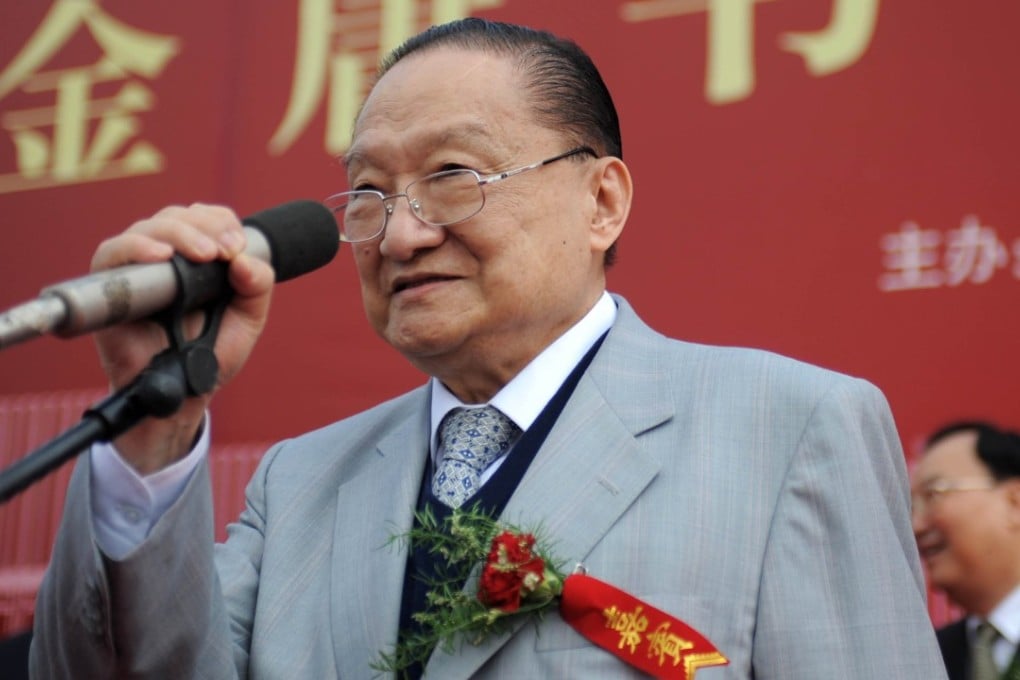Louis Cha ‘Jin Yong’: From masses to bosses, his sway over China was complete
- Better known by his pen name Jin Yong, Cha’s novels inspired movies, TV series and video games for decades
- Recognising Cha’s contribution to Chinese culture, Communist Party leaders also sought out the author

Li Jun started reading the works of Louis Cha Leung-yung when he was in the sixth grade. He borrowed the first one from a friend and he was hooked. He read Louis Cha books in class, instead of doing homework, and sometimes he would read them when he was supposed to be eating or sleeping.
Back then, wuxia novels about martial arts heroes in ancient China were regarded as “poison” on the mainland.
Parents and teachers thought they might interfere with schoolwork, or worse, turn children violent. Li had to hide the books at home – and tuck himself away somewhere to read them.
From that first novel he read as a boy until he was in his 20s, Li would reread Cha’s novels every year. Today, as an accomplished writer himself, Li gushes about the influence Cha had on him.
“He has greatly influenced the post-1970s and ’80s generation,” he said. “His stories were interesting and his characters strong. It was hard to stop reading. His characters had difficulties in their lives that were relatable – they could help you grow, think and overcome your own issues.”